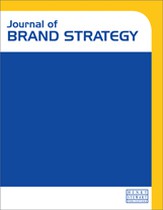A deeper look at the 2020 Facebook boycott and related themes of misinformation: A text mining analysis of topics, emotion and sentiment
Abstract
Facebook has repeatedly come under fire from consumers, companies and government agencies in recent years owing to the prevalence of misinformation on its platform as well as the way it handles information related to social justice and public health, among other things. Using a large data set of 604,269 social media mentions sourced from popular social platforms (eg Twitter and Reddit), this study set out to discover themes associated with misinformation and the Facebook advertising boycott that occurred in July 2020. To understand the discourse, a linguistic analysis approach called theme extraction was used. This method employs machine learning and natural language processing to reveal relationships in the data that may otherwise be buried in the mass of social media mentions. The most prominent theme identified among social media users was the desire that Facebook and other social media platforms actively stop the spread of misinformation. Other trending topics included #StopHateForProfit, lockdown protests, hate speech policy, news as spam, right-wing politics and suspended ads. Managerial implications for advertisers are discussed as they relate to social media management and how misinformation impacts brand engagement on social platforms.
The full article is available to subscribers to the journal.
Author's Biography
Laura F. Bright is an Associate Professor of Media Analytics at the Stan Richards School of Advertising & Public Relations. Her research focuses on social media addiction and fatigue, Big Data and analytics, personalised advertising and digital privacy, and her work has been published in numerous peer-reviewed journals. She has spent over a decade working in the interactive advertising business and supports various companies and organisations to optimise their digital presence.
Kristen Leah Sussman is a doctoral student in the Stan Richards School of Advertising & Public Relations at the University of Texas at Austin, where she works as a Moody Fellow, teaching assistant and researcher. Sussman studies people and their behaviours in the areas of computer-mediated communication, social media and technology. Her research uses computational social science methods and contributes to scholarship that examines topics including media effects, privacy and political advertising, and engagement. Sussman has previously founded and owned one of the first social media agencies in Austin, TX.
Abby Hendricks is a doctoral student in the Stan Richards School of Advertising and Public Relations at the University of Texas at Austin, where she works as a teaching assistant and researcher. Her research interests include social media engagement and effects, influencer marketing and media multitasking.
Leah Archer is a first-year graduate student at the Stan Richards School of Advertising & Public Relations. She is also a Texas Media & Analytics alumnus, belonging to the Spring 2020 Cohort. Her interests include social media, consumer behaviour, motivations and psychology, digital strategy, as well as data and analytics.
Gary B. Wilcox is the John A. Beck Centennial Professor in Communication at the Stan Richards School of Advertising & Public Relations. He is also an associated faculty in the Department of Statistics & Data Sciences and the Center for Health Communication at UT Austin. Dr Wilcox holds a PhD from Michigan State University and two degrees from UT Austin. His recent research interests include unstructured data analysis, social media analytic models and advertising’s effects on alcohol products and brands.
